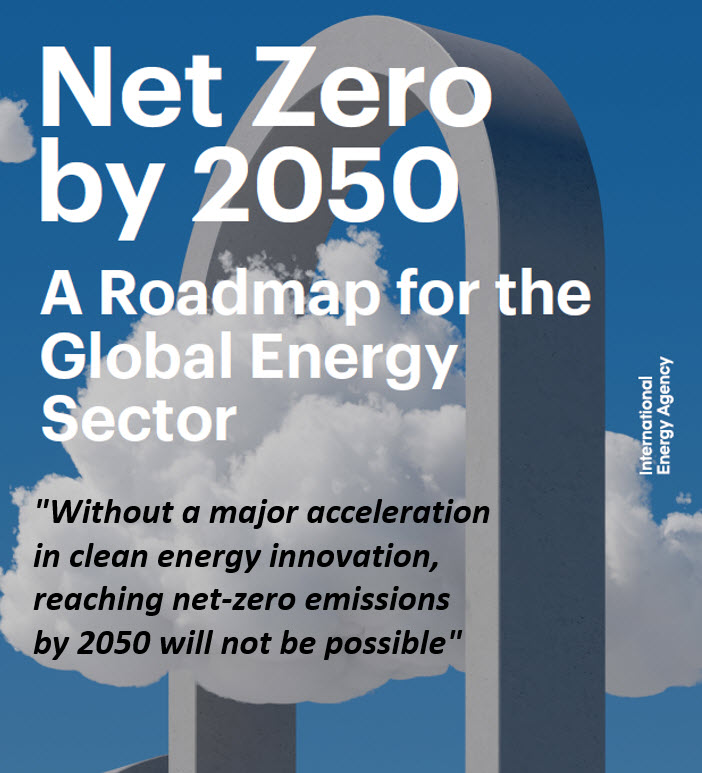I have been concerned for quiet some time about the ‘state’ of the consulting industry when it comes to innovation. There are simply far too many out there offering pieces of the innovation equation. If I was a client I’d be getting fairly hacked off- different people, different approaches, styles, methods of working and that nagging feeling it does not fit any bigger picture.
How do we resolve this?
Combining all these islands of knowledge into some form of combined force would be a healthy step but before we go there I was thinking about what does an innovation consultant contribute and where?
Here are my opening thoughts on this:
 @paul4innovating
@paul4innovating
Seven deadly sins of bloggers
I am a reluctant blogger, I tend to be someone that ‘reacts’ to others blogs. According to a ‘limited’ feedback I have been encouraged to start my own blog. I might regret this so I decided to provide as my first blog a piece of advise that I will try to avoid falling into, as typical sandtraps:
The Seven Deadly Sins of bloggers and aspiring thought leaders that we need reminding about.
1. Isolation
Blogging in increasing isolation and not having enough people reading and reacting to what you are suggesting. Then getting increasingly strident to gain people’s attention forgetting that too much sensationalism does not hold the attention long and thoughtfulness rules the day.
Achieving engagement outcomes from cross-sector innovation ecosystem collaborations

This is the fourth and final post discussing cross-sector innovation ecosystem collaborations. It is primarily dealing with the benefits of collaboration and bringing up to a ‘given point’ a compelling value proposition for potential collaborators in understanding the basic building blocks to consider, for achieving the engagement outcomes required.
Within the series of four posts, I have been emphasising that cross-sector collaborations are becoming essential to our future in tackling highly complex challenging issues that need collaborative resolution, the necessary parts need connecting.
Yet to get to these cross-sector collaborations you do need to take a very considered holistic view of what is needed in any collaboration, let alone ane cutting across sectors to generate a successful outcome. All the elements of skills, processes, tools, capabilities and behaviours are important in supporting an effective collaboration across sectors that might need to be involved.
Approaching Cross-sector innovation ecosystem collaborations

In a series exploring cross-sector innovation ecosystem collaborations, this is the third post discussing different aspects and the approach to this that needs to be taken as my suggested starting point.
All the elements of skills, processes, tools, capabilities and behaviours are important in supporting an effective collaboration across sectors that might need to be involved.
Clarifying the design and common points is essential
Specific skills and toolkits are needed for cross-sector innovation ecosystem collaborations.

This month I am completing a series on cross-sector innovation ecosystem collaborations. This is the second post that I am sharing on both my dedicated ecosystem thinking site and also through my paul4innovating posting site, which has different audiences to discuss this with.
For me, cross-sector collaborations are becoming essential to our future in tackling highly complex challenging issues that need collaborative resolution.
Cross-sector innovation ecosystem collaborations do have real differences and my aim is to draw these out in this series.
Cross-sector innovation ecosystem collaborations

Collaborations form the essence of discovery, relationships, innovation and new knowledge exchange.
As we move increasingly towards more open innovation hubs and increased ecosystem management the recognition is that many of the challenges and problems have not just become too complex to tackle alone, or even in a single industry but require cross-sector innovation (ecosystem designed) collaboration (CSIC) in consortia-developed approaches.
Sharing in collaborative arrangements enables the potential for improved operational productivity, and shared application development, tapping into a wider ongoing customer engagement and skill enhancements for all involved to gain from.
When you begin to evaluate cross-sector collaborations, the potential in building out initiatives that can only be achieved with a diversity of partners, different industry entities and drawing in the varied business networks get recognized.
In a series of posts, both shared on my dedicated ecosystem thinking site and also through this, my paul4innovating posting site, which has different audiences to discuss this with.
For me, cross-sector collaborations are becoming essential to our future in tackling highly complex challenging issues that need well-organized and coordinated collaborative resolution
Yet we have to be careful as cross-sector innovation collaborations do have differences and can be complicated. I hope this post series helps in your thinking about these cross-sector collaborations
Learning to collaborate in a rapidly changing world

We clearly need to find ways to navigate ourselves back into some (new) order, to stabilize the chaos we are in, or beginning to feel we are finally moving out of the crisis and chaos of the last 18 months..
What we first need to do is make sense of what is going on around us.
Then, we need to determine what actions to take and the level of action, resource and support each part needs.
For this we need help, we need collaborators wanting to not just navigate back but more to navigate forward.
We are in a period of (great) change. How are we thinking about adjusting, not just to the immediate challenges but the greater ones that are certainly heading our way?
Within business, the present crisis offers a chance to make significant changes to how we operate in the future. However, I am not sure many of you feel the same; it seems disruption is in everything we need to undertake in what is coming towards us in change.
Are we losing the Energy Transition Battle? Innovation to the rescue?
 The growing fears are that we are falling behind the need to meet the Energy Transition required goals to the World has agreed to by 2050, set to meet the Paris Climate Agreement.
The growing fears are that we are falling behind the need to meet the Energy Transition required goals to the World has agreed to by 2050, set to meet the Paris Climate Agreement.
The climate is about to get really difficult to predict. We are facing some of the natural consequences of our present inability not to reduce greenhouse gases at the rate they are required. We as humans are the perpetrators of generating all these greenhouse gases, and global warming is ruining this one and only planet we have.
Each part of the world is pursuing its energy agenda, understandably so in many ways, but the shift from the dependence on fossil fuels and recognizing all future solutions should be clean energy.
Our environment is in such a significant crisis when you witness the changing weather patterns increasingly becoming unstable and unpredictable. Then we have the increased frequency and amount of flooding or drought many places in the world are facing, let alone the melting of our ice caps and arctic regions.
Our planet is under great stress.
Thinking sustainability needs a mix of future scenarios.

Sustainability is near top or close to the top of a board’s agenda.
The growing concerns of several intertwined issues need addressing as they will initiate a significant change to the Business and how it operates and presents itself to the world.
Boards are asking where our business fits within and alongside society, both in who we serve and society in general, coupled with realising that the planet is heading towards a critical crisis and what we can do to reduce these pressures?
Not just sustainability forces a sharper need for strategic choices but the ability to undertake the product reinvention. A reinvention that concerns itself with reducing waste, minimizing carbon emissions, valuing the full life cycle and the ability to show the increasingly important end-of-life part of the lifecycle model.
Extracting precious, rare earth minerals and recycling parts reduces the demand for future mining or heat intensive materials.
Any products need to have a clear understanding of all their stages for the clarity of sustainability.
Accelerating Clean Energy Innovation

“Without a major acceleration in clean energy innovation, reaching net-zero emissions by 2050 will not be possible.”
A groundbreaking report, “Net-Zero by 2050: a roadmap for the global energy system“(referred to as NZE here) by the Internation Energy Agency (IEA), has been emphasising that this decade is pivotal to reaching net-zero by mid-century.
This 2050 target is in line with the 2015 Paris Agreement, the foundations of global consensus to limit the rise in global temperature to 1.5c. This requires nothing short of a total transformation of the energy systems.
The report is the world’s first comprehensive study of how to transition to a net-zero energy system by 2050 while ensuring stable and affordable energy supplies, providing universal energy access, and enabling robust economic growth.
The report sets out a cost-effective and economically productive pathway, resulting in a clean, dynamic and resilient energy economy dominated by renewables like solar and wind instead of fossil fuels. The report also examines key uncertainties, such as the roles of bioenergy, carbon capture and behavioural changes in reaching net zero.
The role of innovation has a crucial one to play.
In the near term, the report describes a net-zero pathway that requires the immediate and massive deployment of all available clean and efficient energy technologies, combined with a major global push to accelerate innovation.